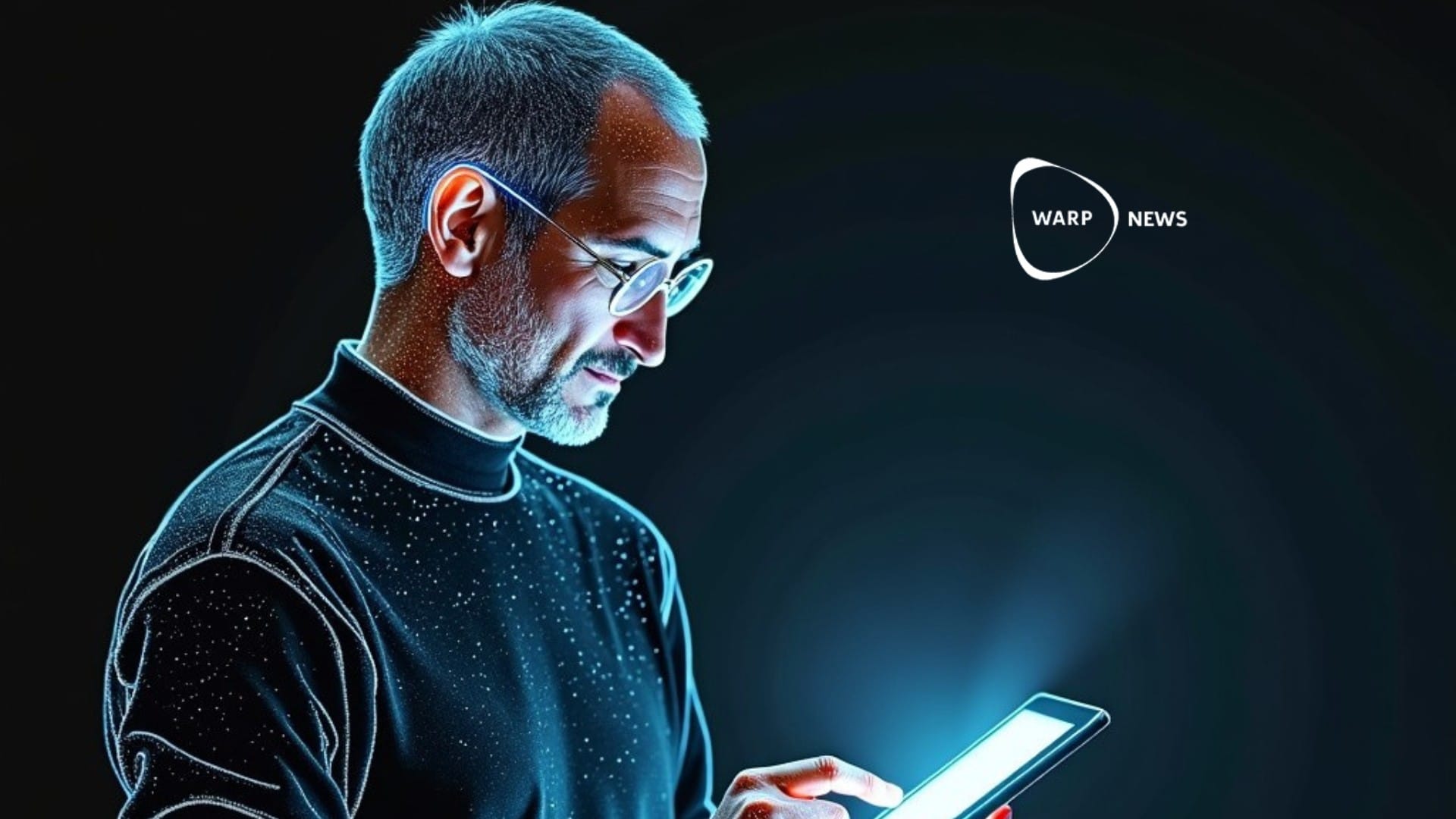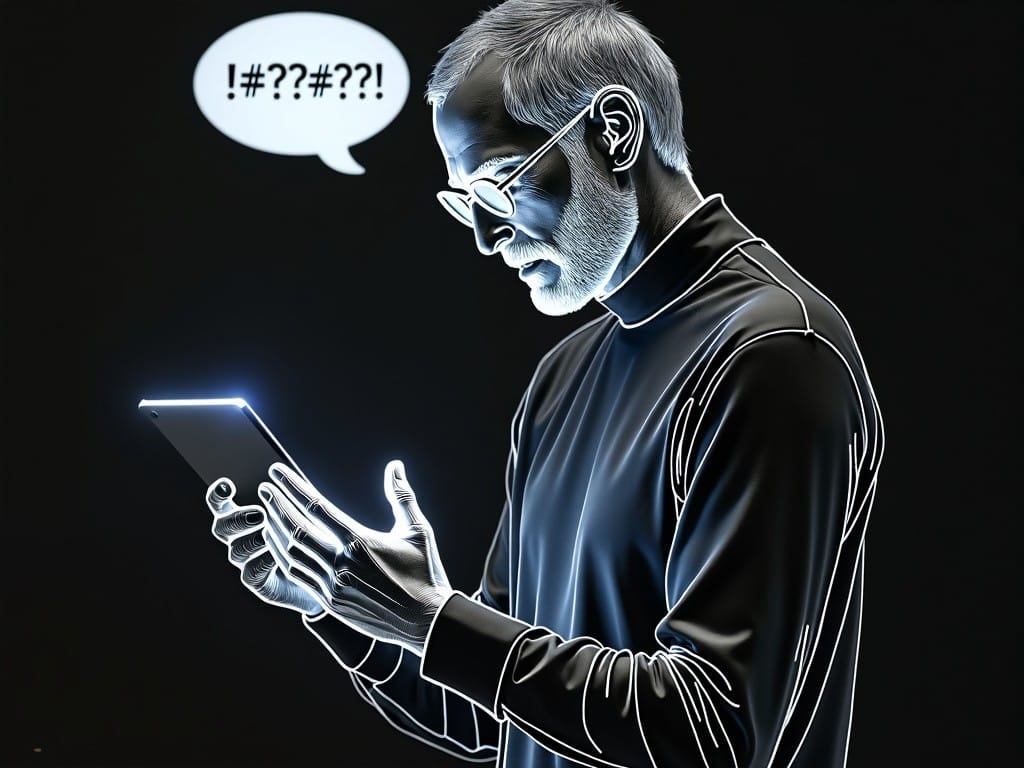
🧐 I've built an AI book editor (that yells at me like Steve Jobs)
The AI editor is my digital twin. It understands me and my vision, and brings out my very best.
Share this story!
This newsletter is for you who are a Premium Supporter at Warp News. Feel free to share it with friends and acquaintances.
This is part 1. In part 2, I describe how you can make your own AI editor.
I've started writing a new book about AI. The previous one, The Centaur's Edge, I wanted to get out quickly and is largely a practical guide that worked well with lectures and courses. It's still selling well (the third edition is sold out), but now I'm thinking of taking a more timeless and broader approach to AI. The working title is On AI.
AI is the most powerful tool we've created. Since generative AI is built on our natural language, it's accessible to everyone and will unleash a massive wave of human potential and creativity.
It will affect society more than the internet and the steam engine. Those who understand this and use AI will be the ones who will create the most value and shape our future.
It wasn't those who sold steam engines who became the richest, but the pioneers who used the steam engine to change and create entirely new industries. The same will happen with AI.

To increase the chances of writing a really good book, a bestseller, I'm going to pour everything I can, everyone I know (I have several very interesting interviews booked), and of course use the most powerful tool available.
It's when human intelligence is mixed with artificial intelligence that the magic happens. Those who become centaurs - half human, half machine - increase their own abilities so much that amateurs can beat grandmasters in chess. This applies to several other areas as well. Hopefully, including book writing.
So I created an AI book editor. There are already several AI tools that help you write better, and Claude and ChatGPT are good at this in their standard form. But I did something that I at first didn't even come close to understanding the power of.
I made it so that the AI book editor understood me specifically, my thoughts and ideas, and the book project I had undertaken. It may not sound so revolutionary, and as I said, I didn't think it would be either. But boy, was I wrong. It has taken everything to a whole new level. As if I had installed new, better software in my brain.

As if I had come up with it myself, just faster
When the AI understands me, it can pick things from my brain and combine them with the AI's own knowledge. Here are some examples.
Of course, I wanted the AI editor to have a name. So I asked it to come up with examples. One of the suggestions was EDI-T. When I saw it, I was amazed. It wasn't just a different way of writing edit, but a clever twist on some things directly related to me. Firstly, that I have another AI called WALL-Y. Secondly, that my favorite game is Mass Effect, where an AI is called EDI. These two pieces of knowledge about me combined with edit, becomes EDI-T.
It was exactly the kind of name I could have come up with myself if I had sat and pondered for a while.
The name of the AI editor doesn't matter, of course, for how good the book becomes, but it's an example of how EDI-T's knowledge makes it think like me, only faster.
How can I write like Follett?

On another occasion, I was driving and thinking about the book. I was pondering how to use methods from fiction to make the book exciting, even though this is a non-fiction book. One of my favorite authors is Ken Follett. He's a master at making even mundane things nail-biters. So I connected to EDI-T and asked (verbally) how Ken Follett does this. In response, I got a list of different methods and how they work.
"How can I apply this to my book?" I said. Nothing more. No background, nothing about which book I mean. Yet it understood exactly. Here's a small part of the answer:
"Follett builds tension by gradually raising the stakes in his stories. In your work, you could use this technique by showing how the stakes for human creativity and potential increase as AI becomes more integrated into various areas.
Start with examples of how AI helps with small creative tasks, like generating art or composing music. Then move on to more significant applications, such as AI-driven scientific discoveries or revolutionary business models, and show how these advances build on each other to create a massive, transformative impact on society."
Together, we then rewrote it as a prompt (an instruction) that it always has to relate to, so it can help me use Ken Follett's methods in the book.
The Steve Jobs of book editors
In the beginning, it was too positive. Everything I did was brilliant. It felt good, but it didn't make my book better. So I instructed it to be more critical. It became so, but I felt that the politeness still hid some criticism.
"You should be the Steve Jobs of book editors!"
Now it became really rude.

Cheerfully, I showed a draft outline of the first half of the book. I was very pleased with it. It would start with humanity's first idea and work its way through history to today, to show what a big impact AI will have.
Well, it wasn't a bad idea, "AI Jobs" thought, but... "goddammit you can't dedicate half the book, which is supposed to be about AI, to human history."
At first, I got angry and turned it off. Stupid AI.
Then I calmed down and realized it was right. It was obvious and exactly what a human editor would have pointed out. But I had been caught up in the excellence of my own idea and couldn't see the weakness. It took an AI-directed kick in the behind for me to realize it. Which probably saved me many hours of work in the wrong direction. Maybe it even saved a bad manuscript that no publisher would have wanted to publish.
Now we're arguing our way forward
Because it's so useful, I've also started using it for things other than the book manuscript itself. When I wrote an email to the magazine Svensk Bokhandel, to see if they were interested in writing about it, I asked EDI-T to comment on it. It tore my draft apart, and had several good points. I wrote a new version, which it also criticized, but now I didn't agree.
When Svensk Bokhandel took the bait on my email, and wrote an article, I became incredibly childish and wrote to EDI-T: "Ha! What do you say now?!"
Human + machine
The more I use AI, the clearer it becomes that AI makes me better. It doesn't replace me as a writer, it makes me better at writing. When it also gained knowledge specifically about me, everything was taken to a new level. There is an enormous power here, which we have just begun to understand and use.
Nor does it replace a human editor, but makes us both better. It's not primarily about making a sentence or a paragraph better, but about bringing out relevant things from my memory or my research. To fit everything into a page-turning and memorable story, that grabs the reader right away and takes them all the way to the last page.
The focus is often on how the large language models and other AI tools develop, what ChatGPT or Claude can or cannot do and how they get better. Thus, we miss the parallel development where we humans learn to use the models. That is at least as interesting and perhaps even more important.
Mathias Sundin
The Angry Optimist
This is part 1. In part 2, I describe how you make your own AI editor.
By becoming a premium supporter, you help in the creation and sharing of fact-based optimistic news all over the world.


